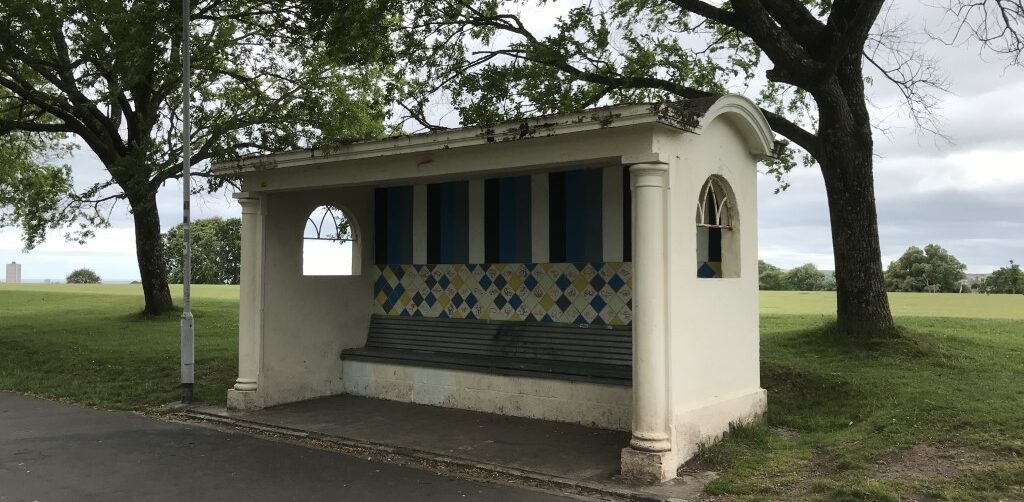When the park opened in 1931, its only shelter was next to the paddling pools and playground near the main entrance at Milehouse. It was a large, stone-built structure with toilets incorporated and it had some architectural quality.

Plans were made for shelters in other parts of the park and contracts let in 1939 but they had to be abandoned when the second world war broke out.
By 1949, requests for more shelters started to re-appear. The exact dates have still to be established but, by 1958, there were five new shelters with their approximate positions shown on Plan No 8 in Appendix A in the City Engineer’s 1981 report, as well as another by the former tennis courts which was demolished to make way for the Mayflower Centre in 1970. The report stated that the condition of the shelters was not very satisfactory and frequent repairs were required due to vandalism. Nonetheless, it recommended that they should be retained.
The Milehouse shelter was demolished c1986 at the same time as the pools and playground. Information about the other shelters is sketchy although the following insights are available.
Playground north of Pounds House
The shelter was still standing when the Historic Landscape Assessment was carried out in 2002 as this photograph shows. It abutted the wall of the old kitchen garden which is now a playground area.

Since 2002, the old garden wall has been reduced in height and the shelter removed. Only the stone seat and steps remain.

Loop Path by the old reservoir walls
A savage, homophobic attack took place in this shelter on 6th November 1995 resulting in the murder of one man and serious injuries to another. The shelter was demolished shortly afterwards.

Discovery Way south of the golf hut
This is the only remaining shelter of those erected in the 1950s although the Meadow Café and Skate Park built in 2019 include covered areas.
The Discovery Way shelter is built of concrete blocks and has a cast concrete roof. It measures about 5 metres by 2 metres. As with the other shelters, it has suffered from repeated episodes of vandalism and graffiti, and demolition has been considered on more than one occasion.

As part of a wider package of improvements in 2019, Plymouth City Council arranged for the shelter to be refurbished with additional measures to deter vandalism which included larger openings at each end and a patterned tile back. The tile work was led by a local artist, Matthew Raw, who engaged young people in developing ideas. They were fascinated by the story of the old zoo and decided to use it as the theme for their tile designs.



